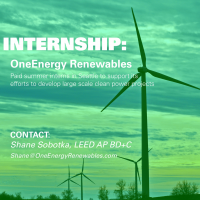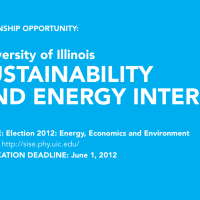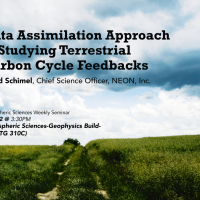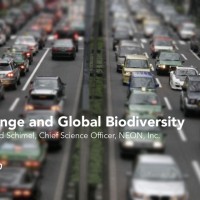
Register now for the 9th Annual Seattle Race Conference: http://seattleraceconference.org/
Building Community to End Environmental Racism: Learn, Connect, Flourish
Saturday, May 12th, 2012
Registration 8:00am, Conference 9:00am-5:00pm
Seattle University, Pigott Hall
The Seattle Race Conference serves as a hub to unite organizations and individuals in a cohesive movement to eliminate racism, the culture of white supremacy, and other systems of oppression. We normalize discussion and action in opposition to racism and other forms of oppression. We support, showcase, and assist in the growth of individuals and organizations to create community based on equity and justice.
Keynote address by Yalonda Sinde, Executive Director of the Association of Environmental Health Academic Programs and Founder of the Community Coalition for Environmental Justice
Playnote presentation by New Wilderness Project
Capstone address by Jourdan Keith, Founder and Director of Urban Wilderness Project
Workshops Include…
Track 1: Where We’re At: The Environment We Live In
Burning Wood for Electricity in the City: Another Example of Environmental Injustice
Presented by Toby Thaler, Mike Smith, and Gretchen Nicholas, Washington Citizens for Clean Energy
As it becomes increasingly clear that the era of cheap fossil fuels for energy is coming to an end, alternatives are being sought. One is to burn wood to make electricity, but doing so produces more pollution than burning oil or gas. Are the impacts of burning wood for electricity in the urban environment being considered from the perspective of public health impacts? What can be done to make sure such impacts are properly considered?
White Folks in the Environmental Justice Movement
Presented by The Coalition of Anti-Racist Whites (CARW)
This workshop will briefly introduce the topic of institutional racism and white privilege, elucidate the role of white privilege in the environmental movement, and then contrast environmental organizing strategies and approaches that do or do not center on race. Workshop participants will explore how centering on race and racism changes the focus and activities of an organization, and come away with a deeper understanding of organizational accountability between majority white environmental organizations and communities of color. This workshop is primarily designed for white people who are interested in approaching eco-organizing from a racial justice perspective.
Environmental Justice and the Law
Presented by Clifford Villa, U.S. EPA Region 10
This presentation will define “environmental justice,” describe legal responsibilities pertaining to environmental justice, and discuss environmental justice policies, tools, activities, and case studies. A question and answer session will follow the presentation.
Housing, Health and Disparities
Presented by Aileen Gagney, The American Lung Association
This workshop will evaluate the connection between poor housing and the health of low income, immigrant and communities of color residents. We will discuss the City of Seattle’s Master Home Environmentalist Program and how the program is assisting the City’s most vulnerable residents to organize efforts around landlord/tenant advocacy, asthma disparities, air pollution and poor housing stock.
Local/Regional Environmental Justice (EJ) Issues and How King County Agencies are Responding
Presented by Ngozi Oleru, Betty Gulledge-Bennett, Cristina Gonzalez & Richard Gelb, King County
This session will use a case study approach to describe local/regional EJ concerns and how King County agencies are tackling disproportionate environmental burdens and fairness in access to environmental benefits. We will engage participants in dialogue about additional concerns and opportunities to address environmental racism.
Cross Cultural Communication – Who Gets Heard at the Table?
Presented by Rosetta Eun Ryong Lee, Seattle Girls’ School
Cross cultural communication theories help explain communication differences across cultures, and yet they lack full definition of the deep influence of power and privilege in US mainstream culture. Whose cultural values, norms, and codes are the “acceptable ones” that determine professional, intellectual, and “polite” discourse in the United States? Examine the intersection of culture and race in communication so that we can ensure everyone is heard at the table, no matter who they are.
White Male Supremacy & White Privilege/Oppression 101
Presented by Dr. Eddie Moore, Jr.
This interactive, informational, challenging and energetic session examines and explores white male supremacy and white privilege/oppression and it’s impact on the environments we live in. Participants will leave with some skills and knowledge necessary to begin addressing issues of white male supremacy and white privilege/oppression individually and institutionally.
Local Environmental Justice Issues & Community Based Solutions
Panel mediated by Yalonda Sinde
Amy Bates, Solutions for Humanity, Community and Environment, Christina Ghallegos, Community Coalition for Environmental Justice and other local environmental justice leaders address the questions: What are the primary EJ issues facing your community? How have you worked to address these issues? What can people do to support your organization and environmental justice?
Track 2: Strategies for Change: The Environment that Supports Us
Community EE: Connecting Environmental Education to Action Around Quality of Life Issues
Presented by Akiima Price, EECapacity
EECapacity is working on a set of Community Environmental Education Guidelines that make statements about the process of educating communities around environmental issues that end in action around quality of life issues. This workshop will collect the input of participants and contribute to the development of a nationally recognized set of Community Environmental Education Guidelines.
Using the Creative Cycle for Change
Presented by New Wilderness Project
Through a series of dynamic, small and large group engagements New Wilderness Project (NWP) will guide participants on a journey that will build on personal connections and the diversity of the community to create a foundation for action. We will follow the New Wilderness Project Creative Cycle™ which details a process for effectively integrating creative expression and metaphor to create a space for learning and building community. We will explore and share personal and professional stories in small groups, reflect on our practice, and in doing so, experience the Creative Cycle™ and understand how it works to develop culturally responsive learning communities. This session will flow from theory to practice to provide a solid foundation for the personal journey toward social justice and equity.
The Role of Listening and Emotional Healing in Building Community to End Environmental Racism
Presented by Teresa Enrico, Eleta Wright, & Su Thieda, United to End Racism (UER)
United to End Racism (UER) will teach the listening processes and emotional healing skills as developed in Re-evaluation Counseling that can enable us to recover from the hurts of racism and environmental racism. These processes and skills will support our organizing efforts to stop the inequitable targeting and polluting of communities targeted by racism, genocide, and colonization as well as build healthier and more human communities for everyone. The workshop will also include practice and information about how to take the skills and information that participants learn back to their families, communities, and organizations especially in dealing with discouragement, burnout, internalized conflicts, and leadership challenges.
Partnership and Justice- Building Strength by Welcoming Allies
Presented by Jill Mangaliman, Washington Toxics Coalition, Jessie Dye, Earth Ministry, & Alberto Rodriguez, Duwamish River Clean-up Coalition
Enviromental justice and toxic clean-up requires broad partnerships to be effective. The Washington Toxics Coalition, Earth Ministry, and the Duwamish River Clean-up Coalition have been leaders in welcoming allies beyond the usual suspects. Learn how these three organizations have reached out and worked effectively in coalition.
Institutional Racism and the Process of Change
Presented by Toi Woo, New Directions Consulting and Tilman Smith
Using the “Continuum On Becoming a Multi-Cultural and Anti-Racist Organization” by Crossroad Anti-Racist Organizing and Training’s tool, this workshop will shine a light on the internal transformation process of critical structural changes that are needed to be a multi-cultural/multi-racial environmental justice agency. The Continuum will be examined in order to give participants opportunities how to apply the framework to their respective organizations.
The N!gga (er) Word: Is There a Message in The Madness?
Presented by Dr. Eddie Moore, Jr.
The session will take a look at the history of the n!gga (er) word by challenging participants to examine their personal and professional histories with the n!gga (er) word, examine when and/or how they were first introduced to the word, and explore the pictures and different feelings associated with the word. We will look at how current events, media, popular music and movies have used the n!gga (er) word over the years and if the word has had any impact or influence on the millennial generation.
Building a Culture of Inclusion: Removing Racism from Organizational Culture
Presented by Tom Nesby, Nesby + Associates, Inc. and Effenus Henderson, Chief Diversity Officer of Weyerhaeuser Inc.
This workshop features a roundtable panel discussion involving corporate and organizational executives and leaders. The panel will respond to common and complex scenarios and questions regarding racism, racial dynamics, and diversity in corporate settings and how they impact a culture of inclusion. Discussions will take place between the panel members and conference attendees.
Bridging Community Needs with Tools and Resources for Action
Presented by Running Grass, Sheryl Stohs, Ph.D. Gabriela Carvalho, Rochelle Labiosa, Ph.D. and Gretchen Stewart, U.S. EPA
This is a highly interactive session designed to identify and develop skills that racially and ethnically diverse communities can use to better compete in the funding process. Learning EPA’s GIS mapping and Toxic Release Inventory (TRI) tools and resources will allow users to position relevant projects, designed to help understand and address exposure to multiple environmental harms and risks for communities of color. This opportunity for collaboration, will explore partnerships and leadership strategies specifically focused on the Environmental Justice Small Grants.
A Diet for Social Justice:Eating Local & Organic is a Race Issue
Presented by Chilan Ta and Michelle Kleisath, Consider This
By comparing the social justice costs to the monetary costs of staple American foods, we will show how food is a racial justice issue and share our personal strategies for a social justice diet on a monthly food budget of $330.






